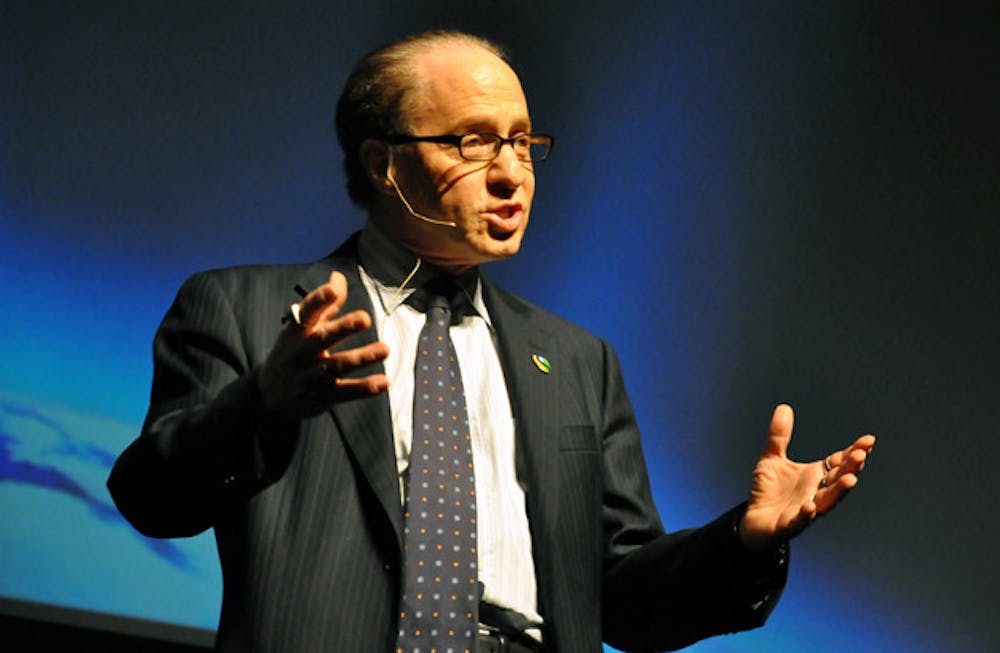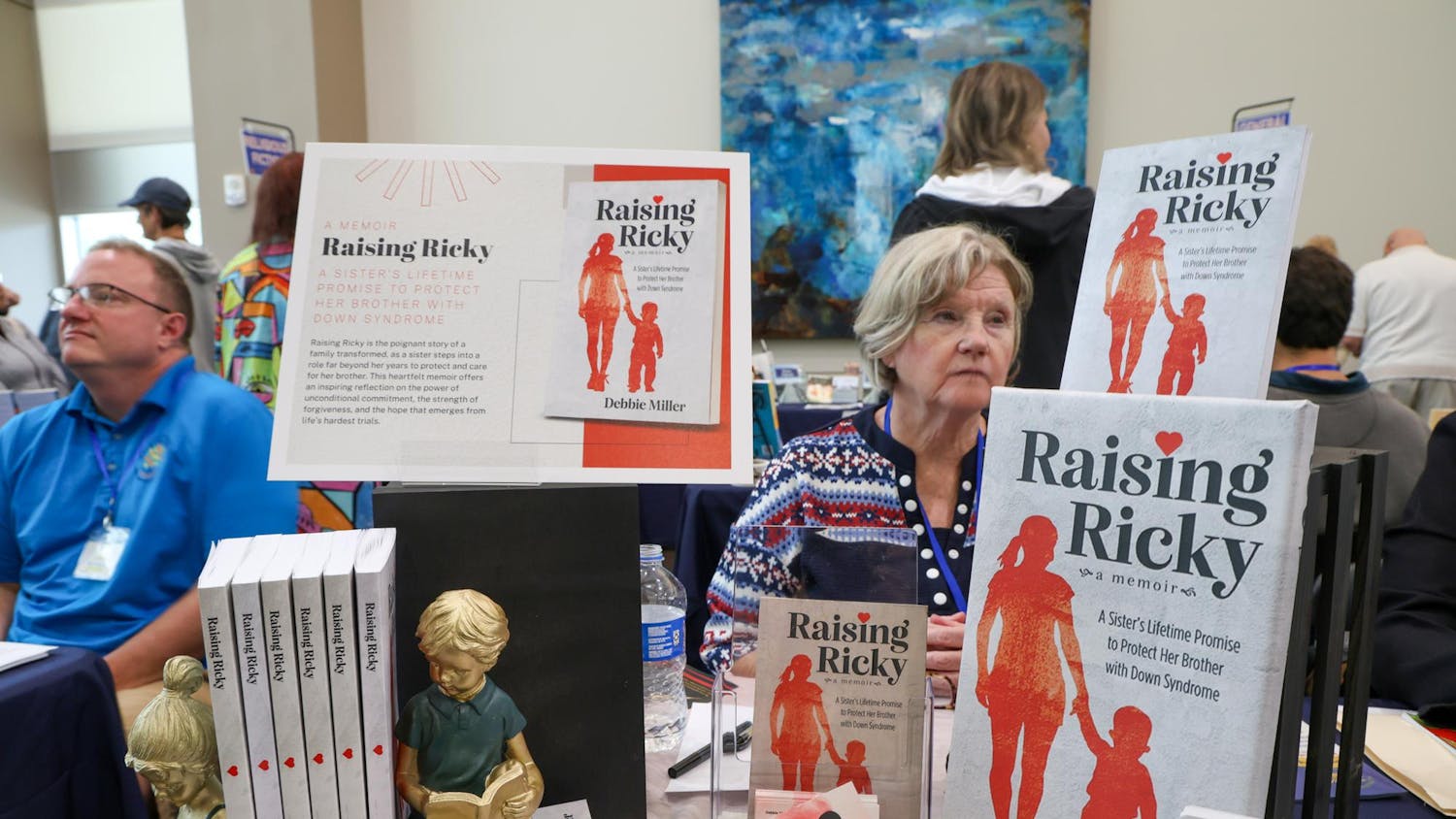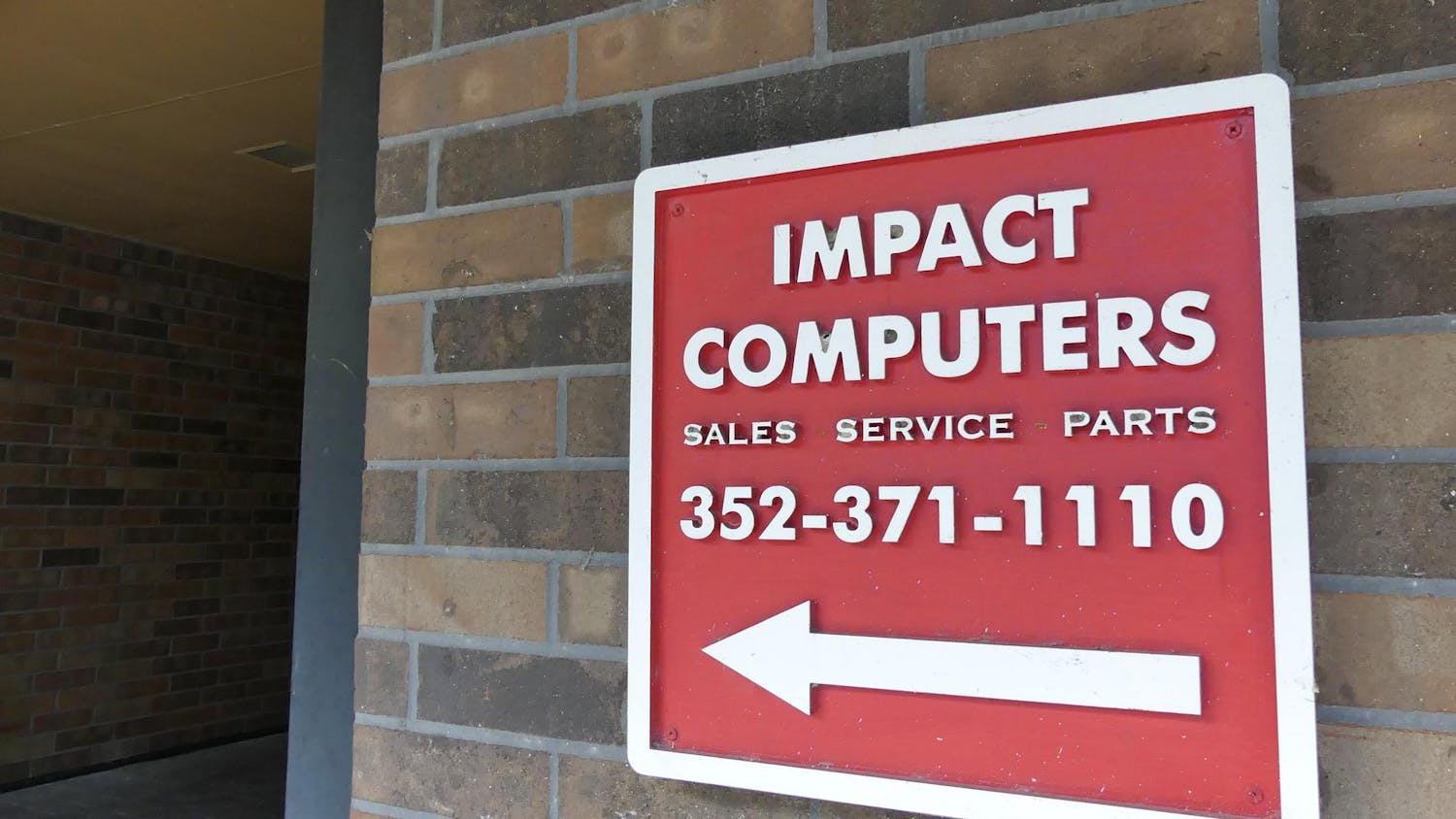Ray Kurzweil held out his cell phone on stage for the audience to see.
“This is a billion times more powerful than the computer I used at MIT in 1965,” he said.
The same device, he said, will be the size of a blood cell and a billion times more powerful by 2029.
It was just one of many predictions he gave to an audience of almost 1,700 at the Phillips Center for the Performing Arts on Wednesday evening.
Famous for his books on the future, Kurzweil believes computers will eventually become smarter than humans and that technology will allow people to live much longer.
He calls it “the point of singularity” and said such things are possible because information technology doubles every year.
Some students left saying they were significantly impacted by the event.
Fourth-year history major Alan Lipp thought Kurzweil was right on point.
“It strongly represented the exponential growth in technology,” Lipp said. “The idea that sooner, rather than later, you can count on seeing exponential improvement.”
Others weren’t so impressed.
Political science graduate student Chris Manick called the event disappointing and boring. “The faith that he exhibits, he’s no different than a pastor,” he said, arguing that Kurzweil is overly optimistic.
After the lecture, a screening of his upcoming documentary “Singularity is Near: A True Story About the Future” was shown, followed by a Q-and-A period and a book signing.
The event was sponsored by Michael Singer, a close friend of Kurzweil, and presented by the Dharma Endowment Foundation and the College of Fine Arts.
“I love speaking to students, especially in a university setting, because that is the one place where critical thinking is celebrated,” Kurzweil said before the event. “I especially enjoy the dialogue portion of my talks and it is at great universities such as UF where I get the most penetrating questions.”
The lecture was meant to kick off the annual Creativity in the Arts and Sciences Event this weekend, where students display “original artwork, including visual, musical, dance and theatre performances, or scientific research posters,” according to the CASE website.






